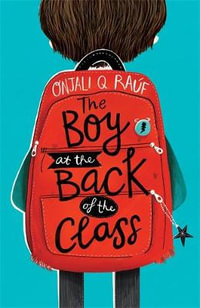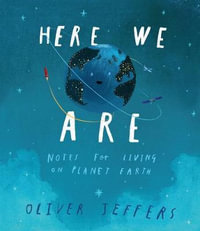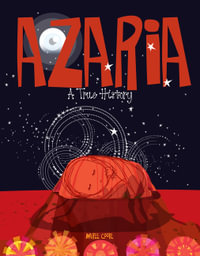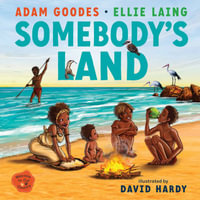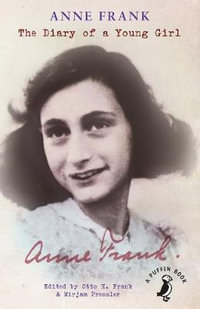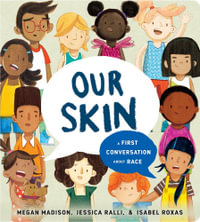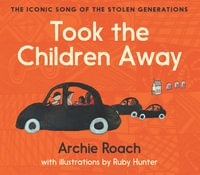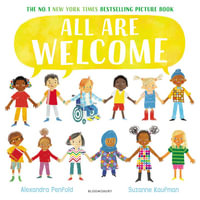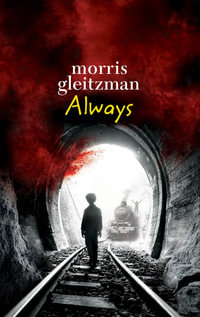
Our Stories, Our Voices
21 YA Authors Get Real About Injustice, Empowerment, and Growing Up Female in America
By: Amy Reed, Julie Murphy, Sandhya Menon, Ellen Hopkins
Paperback | 3 March 2020
At a Glance
Paperback
$28.75
Aims to ship in 15 to 25 business days
When will this arrive by?
Enter delivery postcode to estimate
From Amy Reed, Ellen Hopkins, Amber Smith, Nina LaCour, Sandhya Menon, and more of your favorite YA authors comes an “outstanding anthology” (School Library Connection) of essays that explore the diverse experiences of injustice, empowerment, and growing up female in America.
This collection of twenty-one essays from major YA authors—including award-winning and bestselling writers—touches on a powerful range of topics related to growing up female in today’s America, and the intersection with race, religion, and ethnicity. Sure to inspire hope and solidarity to anyone who reads it, Our Stories, Our Voices belongs on every young woman’s shelf.
This anthology features essays from Martha Brockenbrough, Jaye Robin Brown, Sona Charaipotra, Brandy Colbert, Somaiya Daud, Christine Day, Alexandra Duncan, Ilene Wong (I.W.) Gregorio, Maurene Goo. Ellen Hopkins, Stephanie Kuehnert, Nina LaCour, Anna-Marie LcLemore, Sandhya Menon, Hannah Moskowitz, Julie Murphy, Aisha Saeed, Jenny Torres Sanchez, Amber Smith, and Tracy Deonn.
Industry Reviews
Gr 9 Up–Twenty-one YA authors—including such well-known figures as Ellen Hopkins, Maurene Goo, and Printz award-winner Nina LaCour, as well as two unpublished authors selected from a call for submissions—reflect on their early lives and what it means to be a woman in the United States. Many of these writers experienced marginalization as younger girls based on race, immigration status, sexuality, or simply not fitting in. Each turned to writing as solace, an outlet, or a way of speaking out against injustice. The stories are all unique, some focusing on the subject’s childhood, others on their lives as adults. Many discuss their anger at the recent presidential election and put out an inspiring call to action. The authors speak directly to readers in an informal tone; the essays are written in the first person with some casual profanity. A content warning in the editor’s note mentions that the entries discuss race-based and sexual violence. A resource list includes websites of activist organizations, in addition to information on how to participate in the political system. VERDICT Many readers will see themselves reflected in the pages of this collection and be inspired by the first-hand accounts of overcoming adversity. A great pick for budding writers and activists.–Clara Hendricks, Cambridge Public Library, MA
ISBN: 9781534409002
ISBN-10: 1534409009
Published: 3rd March 2020
Format: Paperback
Language: English
Number of Pages: 320
Audience: Teenager/Young Adult
For Ages: 14 - 99 years old
For Grades: 9+
Publisher: Simon & Schuster Books for Young Readers
Country of Publication: GB
Dimensions (cm): 1.9 x 21.2 x 14
Weight (kg): 0.254
Shipping
| Standard Shipping | Express Shipping | |
|---|---|---|
| Metro postcodes: | $9.99 | $14.95 |
| Regional postcodes: | $9.99 | $14.95 |
| Rural postcodes: | $9.99 | $14.95 |
How to return your order
At Booktopia, we offer hassle-free returns in accordance with our returns policy. If you wish to return an item, please get in touch with Booktopia Customer Care.
Additional postage charges may be applicable.
Defective items
If there is a problem with any of the items received for your order then the Booktopia Customer Care team is ready to assist you.
For more info please visit our Help Centre.

